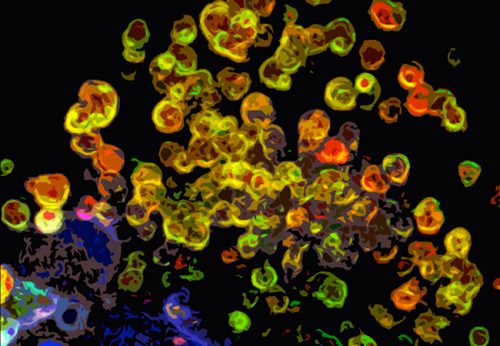When cancer cells divide uncontrollably, it is because so-called oncoproteins take on a central role in managing the cell division cycle. In normal cells, which usually divide infrequently, these proteins are very short-lived and quickly degraded by the cell. This no longer works in cancer cells: oncoproteins, frequently found in aggressive and therapy-resistant types of cancer, are very long-lived, leading to uncontrolled cell proliferation. Such tumor types are also known as “degradation-resistant cancers”, and effective therapies to treat them are being sought worldwide.

As part of a joint research project, scientists from Haifa-based Technion – Israel Institute of Technology, Goethe University Frankfurt and Helmholtz Munich /Ludwig-Maximilians-Universität München are investigating such oncoproteins and attempting to develop starting points for new therapies. The project – “Understanding and Targeting Degradation-resistant Cancers” – has received €1.6 million in funding as part of the German-Israeli Project Cooperation [Deutsch-Israelische Projektkooperation, DIP], which the Federal Ministry of Education and Research (BMBF) set up in 1997 with a view towards strengthening excellence in German-Israeli research cooperation. Following an agreement reached between the BMBF and the German Research Foundation [Deutsche Forschungsgemeinschaft, DFG], the latter assumed all scientific and administrative responsibility for the project, with the BMBF continuing to supply the funds for the five-year projects.
The three scientists from Technion who are part of the project are Ashraf Brik, Amir Orian and Dan Bracha. On the German side, the working groups in Frankfurt and Munich are conducting their research under the direction of Prof. Ivan Đikić from Goethe University’s Institute of Biochemistry II and Markus E. Diefenbacher, professor at Ludwig-Maximilians-Universität München and group leader at Helmholtz Munich. Together, the scientists have set out to decipher the basic molecular mechanisms responsible for stabilizing oncoproteins and develop starting points for new therapies. To this end, they want to identify target structures for classic active substances (so-called small molecules) and find active substances that accelerate the degradation of oncoproteins, so-called PROTACs (proteolysis targeting chimeric molecules). With the help of PROTACs, the oncoproteins are to be provided with the cellular label ubiquitin and thus fed into the cellular recycling system.
The Frankfurt Competence Center for Emerging Therapeutics (FCET), recently founded as part of the Goethe Center for (High) Technology (Go4Tec), plays a central role in the project. An innovation center, FCET offers access to high-end instruments and technologies.








